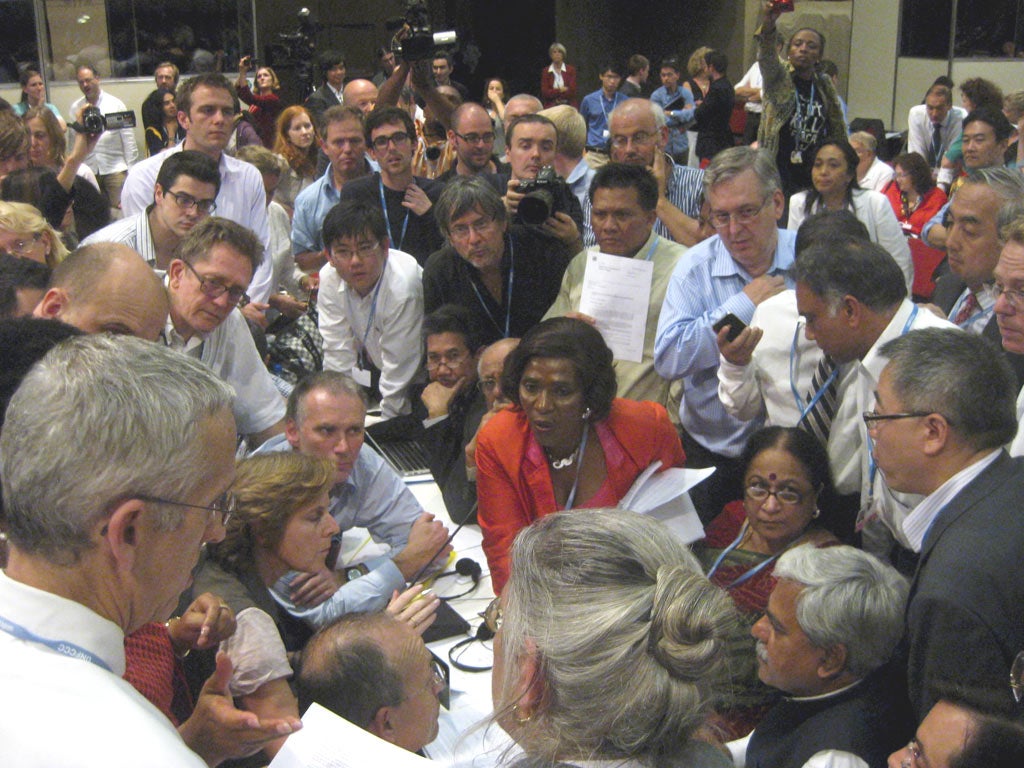Big Three legally bound to reducing emissions

The world's three biggest emitters of greenhouse gases, China, the US and India, will be legally bound to cut their emissions for the first time under a new global warming treaty prefigured at the close of the Durban climate conference yesterday.
The move, finally agreed at 5am on Sunday, is a substantial step forward in fighting climate change, as between them the "Big Three" emit 46 per cent of carbon dioxide pouring into the atmosphere annually, yet are not currently obliged to cut this back in any way.
The fact that their emissions will now be brought into a binding reduction framework gives some hope that the world may hold the expected rise in global temperatures under the danger threshold of 2C above pre-industrial levels. Without their participation, the chances of this were zero.
Yet at the start of the conference all were resolutely opposed. The fact they were persuaded to change their minds was a victory for the European Union, which came to Durban with the aim of negotiating a "road map" to a new climate pact binding every country of the world. The current climate treaty, the Kyoto Protocol, does not cover them.
The EU succeeded in its three aims – a new legal treaty, with a signing by 2015, and an entry into force by 2020.
The conference was finally saved by a deal between two women – the EU Commissioner for Climate Action, Connie Hedegaard from Denmark, and the Indian Minister of Environment Affairs, Jayanthi Natarajan, who agreed on a final formula.
In return for the agreement, the EU agreed to a new version of the Kyoto Protocol, which has in the past been important to the developing countries as a talisman of rich countries' good faith, but is increasingly seen as less important. The concerns of countries such as India and China about climate action harming their development have been recognised by the setting up of the Green Climate Fund, which will channel the $100bn per year of finance which wealthy nations have promised by the end of the decade.
Chris Huhne, the Energy and Climate Change Secretary, said: "This deal is a significant step forward."
Durban deal clinched by two strong women, a united EU and a compromise
Join our commenting forum
Join thought-provoking conversations, follow other Independent readers and see their replies
Comments